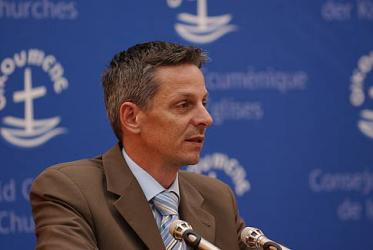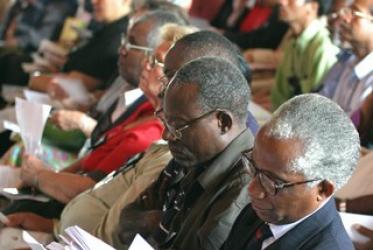Mostrando 10861 - 10880 de 12562
18 Febrero 2008
Kenya needs voice of churches
15 Febrero 2008
Kingston will host WCC peace convocation in 2011
15 Febrero 2008
WCC dreams of broader Assembly
15 Febrero 2008
Programas del CMI a buen ritmo
15 Febrero 2008
Tótem vuelve a la tierra en Bossey
15 Febrero 2008
Kingston será sede de convocatoria ecuménica por la paz
15 Febrero 2008
Proponen estrategia comunicativa
15 Febrero 2008
Kenia: una advertencia de lo que puede ocurrir en otros países
15 Febrero 2008
"Esperamos contribuir al avance del movimiento ecuménico"
15 Febrero 2008
A new book launches
14 Febrero 2008
Kobia sees changing landscape
14 Febrero 2008
Serving as stewards
14 Febrero 2008
Kenya, Gaza, Sri Lanka y Pakistán a debate
14 Febrero 2008
Asamblea ampliada creará confianza
14 Febrero 2008
Comité Central del CMI explora viabilidad de asamblea ampliada
14 Febrero 2008
Dos iglesias recibidas en la comunidad fraternal del CMI
14 Febrero 2008
Table talk
13 Febrero 2008
Moderator urges perseverance toward unity
13 Febrero 2008







